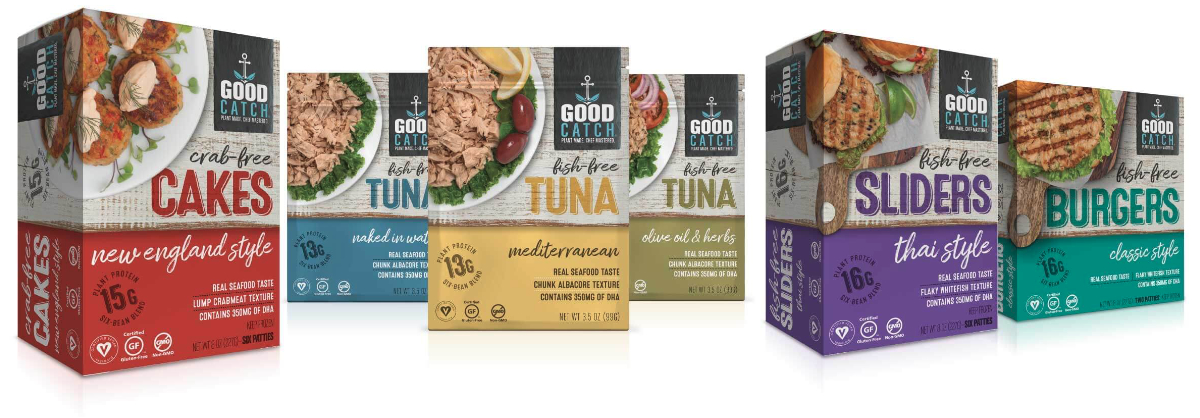NEW YORK — Good Catch Foods, maker of plant-based seafood alternatives, has closed an $8.7 million Series A funding round led by its founder, New Crop Capital, and a syndicate of investors, including PHW Group, Thrive Market, Fresh Direct, Stray Dog Capital, Clear Current Capital, VegInvest, Rocana Capital, Blue Horizon, EverHope Capital, Baleine & Bjorn Capital, M13 and Starlight Ventures.
“The equity investment in Good Catch is evidence of our forward-thinking strategy,” said Paul Wesjohann, chief executive officer of PHW Group, one of Europe’s largest poultry producers. “Good Catch is consistent with our pursuit to provide the U.S. with sustainable, clean foods. We do not see this transaction as a financial investment but rather as the beginning of a long-term strategic partnership.”
Based in Newton, Pa., Good Catch offers faux fish dishes designed to look and taste like the real thing. The company’s mission is to help solve the ocean’s global issues with sustainable food technology and marine welfare.

“The relentless and indiscriminate killing of marine life is devastating ocean ecosystems,” said Chris Kerr and Eric Schnell, co-founders and co-c.e.o.s of Good Catch. “The only truly sustainable seafood is seafood that allows fish to remain in the ocean. It is abundantly clear that we need a new approach to seafood. This is a global concern, and we need global stakeholders to put this approach into action; time is not on our side.”
Good Catch products include pouches of fish-free tuna, fish-free sliders, fish-free burgers and crab-free cakes created from a proprietary six-bean blend. The recipes feature pea, soy, chickpea, lentil, fava and navy beans, and contain 13 grams of protein and heart-healthy fats.
“Today, while navigating the quest for clean protein and nutrition, consumers are faced with a minefield of choices and tradeoffs,” said Marci Zaroff, co-founder of Good Catch. “Good Catch is committed to solving the problem with innovative ingredients and delicious novel products that serve and satisfy consumers globally — no exploitation required.”




